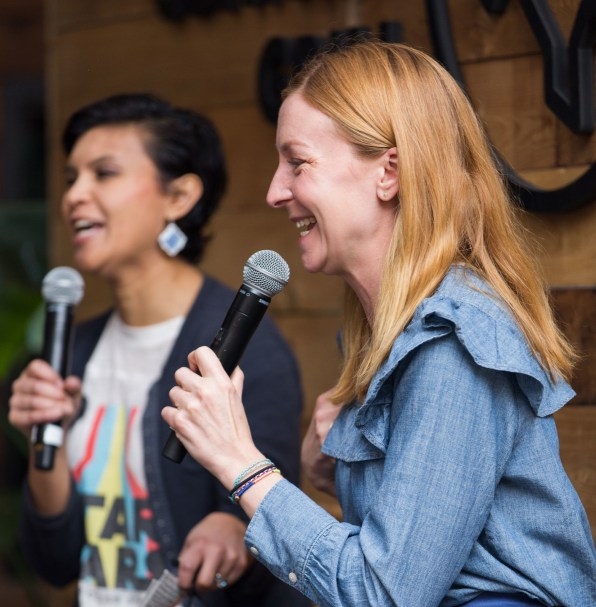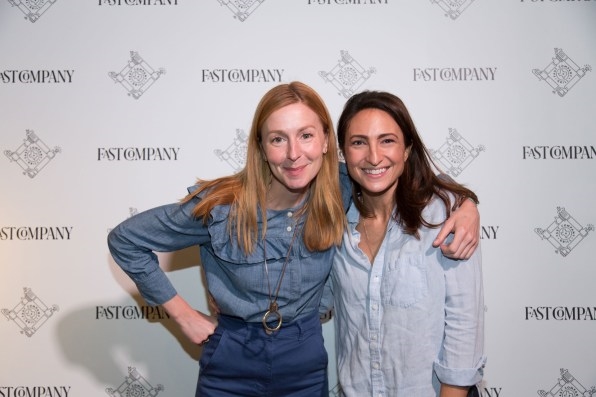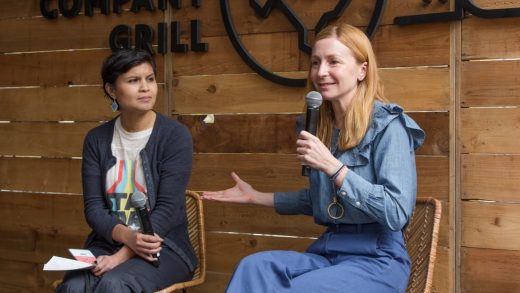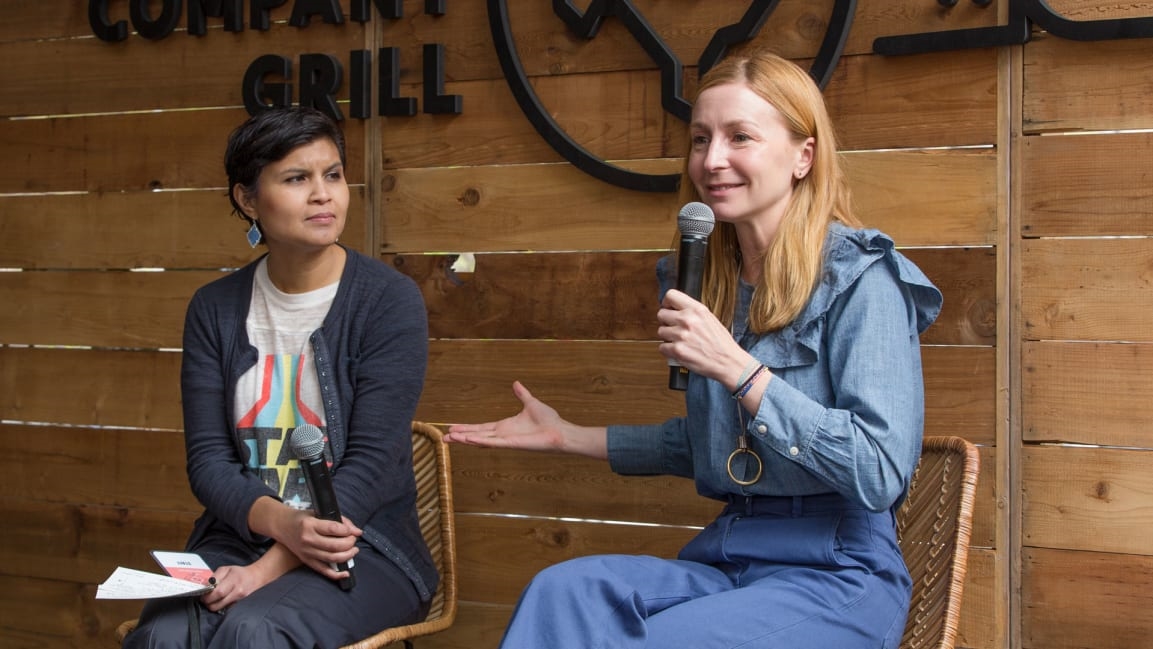How Milk Bar’s Christina Tosi reacted when the cookie crumbled
“When you’re on a team of high performers, it’s hard to talk about failure.” But Milk Bar’s founder, Christina Tosi, understands that without talking about mistakes, her cookie company, which features left-field desserts like crack pie and the beloved compost cookie, would never grow past them. In a conversation with editor-in-chief Stephanie Mehta at the Fast Company Grill at SXSW in Austin, Texas, today, she put her own failures front and center.
Tosi talked about the “Milk Bar Life” brand extension she spearheaded, and why it ultimately didn’t work out. “The reality of working at Milk Bar is you eat a lot of cake and a lot of cookies and a lot of pie,” she said. “The more that I looked around the Milk Bar office, we’d either be crushing 20 kinds of cookies, or eating very healthily. The ‘be good’ part of our diet felt very sterile.” Tosi pinched her nose with her fingers as she described drinking her green juices, but also thought she saw an opportunity for Milk Bar to create products that customers would want to buy when they didn’t want another of her quirky sweet treats.

But, ultimately, consumers weren’t cotton-candying to Milk Bar as a place for healthy, or even healthyish, eating. “I pushed us in and pushed the team,” Tosi said. “Eight months in, it wasn’t losing money, but it was not performing. And I kept pushing.”
Finally, during a meeting to address the initiative, Tosi says her team spoke up. “One voice after another [said], ‘People don’t want to drink their green juice at Milk Bar, Christina. They want Milk Bar as an escape.’ I was willing to ask the question and they were willing to take the leap and say, Your vision doesn’t work anymore. So, we don’t do it by and large.”
Tosi, as founder and CEO, had focused on developing a workplace culture of risk taking, but also honesty. The tandem principles are what empowered her team to be able to tell her that her brainchild had run its course. At the same time, because of those tenets, she knew she could admit defeat without losing their respect.
“When you’re on a team of high performers it’s hard to talk about failures,” she noted, which is perhaps why the example she shared with the audience was not the calling out of a subordinate’s failure, but admitting her own.
Milk Bar’s “safety in failure” comes from Tosi’s determination to create a workplace culture which encourages “making the impossible happen on a daily basis.” She says the team isn’t penalized for trying and not succeeding. Instead, she asks herself, “How do you applaud failure for taking risks, as opposed to failure for not reaching far enough?”
When hiring for Milk Bar, Tosi says, “On some level what we are gauging is, ‘Do I want to be in the trenches with this person? Is this someone I want to bunk up with at SXSW while we load cookies into the claw machine? Or figure out how to put parachutes on cookies and throw them out in the sky?’” Editor’s note: Yes, Fast Company’s presence at SXSW includes a Milk Bar pop-up, and a claw machine for cookies! However, we are not dropping cookies out of the sky. That we know of.
That balance between attempting the impossible but being accepting of any outcome–as long as long as maximum effort was made–is to what Tosi credits Milk Bar’s success. “We all want to succeed,” she said, “but we forget the space in between is where we stand to win the most and where we gain the most respect.”

Tosi’s candor is not unusual for her; she explained her outlook on business and life to attendees in the context of being a woman baker who went from creating a pop-up dessert store inside David Chang’s Momofuku empire to spinning off her own company with locations in six cities and nine outlets in New York alone. “As a female entrepreneur, two things are tricky,” she said. “It’s easy to get into your own head and by default of that, it’s easy to get into a defensive place. People are not out to get me, but it’s important to keep your physical guard and emotional guard low, because it’s important to connect with people.”
After taking $10 million in investment from RSE ventures in 2017 to grow the business, she has found the fresh capital boosted her top line, but also gave her a board of directors to report to, a development that requires her to consider alternative points of view when planning Milk Bar’s strategy and direction.
“Board opinions are different than yours but opinions are good, they challenge you. If I didn’t open myself up to that…then I wouldn’t be better. It’s not going to be rainbows and sunshine all the time. Sometimes you have to drink a green juice that doesn’t smell good, but that gets you to rainbows and sunshine.”
(22)



